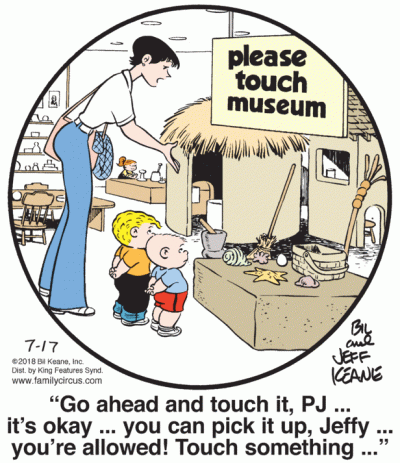
It is difficult to keep up with all that is going on in the history community. There are newsletters and conferences but no one gets the news letters of every individual history organization nor can one attend all the conferences…or even the sessions at a conference. Many of the items in newsletters are standard in nature: a lecture, a new exhibit, an anniversary and, of course, funding requests. What I want to present here are some examples of what people are doing outside the regular routine and which may serve as examples or inspirations for others.
PASSPORT TO HISTORY (OLD COLONY REGION, MA)
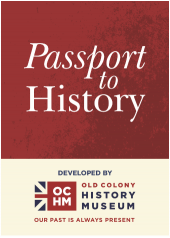
One of the newsletters I receive is from Massachusetts Humanities. It has separate notices for each of the regions in the state of all the activities it funds. Many are of the routine nature as I noted above but sometimes there are special activities which stand out. One such notice from last year was a summer program from the July 4 to Labor Day weekends, prime tourist season, called Passport to History.
According to the notice:
The Old Colony History Museum announces the return of a collaborative museum program, Passport to History. Passport to History is a joint effort of eleven local museums, spearheaded by Old Colony History Museum, to share and explore the fantastic and diverse history of southeastern Massachusetts. Visitors will have a chance to explore eleven area museums and learn about the exciting and varied history of the Old Colony region. Take a photo at your favorite spot (or all of them!) and tag us with #PassportToHistory to share a piece of history!
According to the website
All of the museums participating in the program reside within the boundaries of what was known as the Old Colony. The term Old Colony refers to the area of southeastern Massachusetts that was once Plymouth Colony. Plymouth Colony existed as a separate entity until its merger with the larger Massachusetts Bay Colony in 1691. Then the area became known as “Old Plymouth Colony” until it was finally shortened to “Old Colony.” Home to humans for at least 10,000 years before Europeans settled the area in 1620, the land today encompasses Plymouth, Bristol, and Barnstable counties. Bounded on three sides by the Atlantic Ocean, the Old Colony was richly endowed with well-protected harbors and a river system that made trading, and later industry, profitable.
The year 2018 did not mark the origin of the program, just the first time I became aware of it. I saved that notice for a future blog and the future is now. A new notice has been posted on The Old Colony History Museum website announcing the return of the program for 2019. Now there are 15 participating organizations and the program starts June 1. Tourists are invited to stop at any of these sites to get their 2019 passport, have it stamped by the sites they visit, and share their experience at #PassportToHistory
Attention all tourist departments
Passport to History was developed by the Old Colony History Museum and funded, in part, by the Massachusetts Office of Travel & Tourism. This program is also supported in part by grants from the Berkley, Dighton, and Middleborough Cultural Councils, local agencies which are supported by the Mass Cultural Council, a state agency.
Last year the Northeast AAA listed it in its publication.
For additional information go to:
Web: oldcolonyhistorymuseum.org
Email: info@oldcolonyhistorymuseum.org
Doesn’t this seem like something that should be done everywhere? Kudos to the Old Colony History Museum for initiating the program and to the Massachusetts Office of Travel & Tourism for recognizing its value.
Perhaps other tourist departments are doing something similar and would like to share.
SARATOGA COUNTY HISTORY ROUNDTABLE FORMED
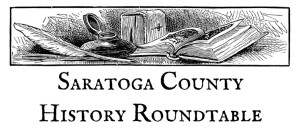
This item came to me through the New York History Blog, a daily blog of activities and events throughout New York State. I began writing for this blog and still send a notification to editor John Warren of new blogs for posting. It is a great way to keep up-to-date with what is going on in the state.
Recently there was a notice about the Ballston Area History Roundtable changing its name to the Saratoga County History Roundtable.
The new name is in recognition of the expansion of the membership, programs, and community history-related projects of the group.
The mission of the organization is to deepen the understanding of local history through presentations, discussion groups and research by history buffs throughout Saratoga County.
The Roundtable in an independent group that functions in close collaboration with the Saratoga County Historical Society and considers Brookside Museum, 6 Charlton Street, Ballston Spa as their home base. Monthly programs are held there or at other locations throughout the county.
Besides just getting together to learn and network, the Roundtable has created two products of value. The first is a website of the programs in the county. It also serves as a vehicle through which presenters share information on their programs for the benefit of anyone interested in their topics. I just signed up.
[Second, t]he Roundtable has also re-launched The Gristmill – Saratoga County History Journal, originally published by Brookside Museum from the 1970’s to the 1990’s. The Journal is published quarterly and is available both online at the SCHR website and at local libraries, museums and community venues.
I wonder how many other such journals exists at a local, county, or regional level.
For more information, go to:
Web: saratogacountyhistoryroundtable.com
Email: SCHR Coordinator, Jim Richmond, SaratogaCoHistoryRoundtable@gmail.com
FUNDING HISTORY INTERNS

This notice came from Professor Michael Oberg, SUNY Geneseo. I wrote about him previously in Creating History Education Partnerships: Three Case Studies (March 21, 2019) due to a local history conference he had convened. One of the items for discussion at the conference was internships for college students with the local historians to incorporate local history into their education. In April, he sent out a notice that he had recruited five interns for the summer program.
Earlier this month he sent out another notice on his latest quest: funding.
I am completing a grant application. If successful, the grant will provide funding for 14 internships over the course of the fall and spring of next semester. Under the terms of the grant, I would like these interns to work with one of you [history organizations] on a project in local history.
I hope to publish the fruits of this research on the Geneseo Center for Local and Municipal History Webpage, which is still in the planning stages, and on the webpage of your organization.
I would like these internships to result in an original research project on an aspect of local history that you find compelling. I will place the highest value on opportunities where our students will work with you on research projects that tell stories that have not been told before, that add new elements to our local history, and result in the preservation of stories that might otherwise be lost. This is a deliberately expansive description. I want our students to work with you on original and innovative projects. Because the work would be done during the fall semester of 2019 or the spring of 2020, I need to know your availability. You also need to be within reasonable driving distance of Geneseo, as most of our students live on or very nearby the campus.
For addition information on promoting local history at the college level, go to:
Michael Oberg
Distinguished Professor
Department of History
State University of New York, College at Geneseo
Geneseo, NY, 14454
oberg@geneseo.edu
www.MichaelLeroyOberg.com
(585) 245-5730
Imagine if more colleges did this. Maybe there are some that already are doing things to promote local and state history. It would be nice to hear from them.
Michael added a note with which I sympathize. He said only 52% of his missives are being opened. I would love to have 52% of the people on this list OPEN AND READ my posts…as well as having more people receive them in the first place. Increasing the distribution would be nice too!


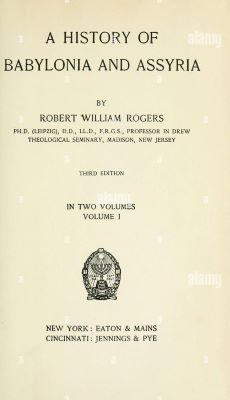
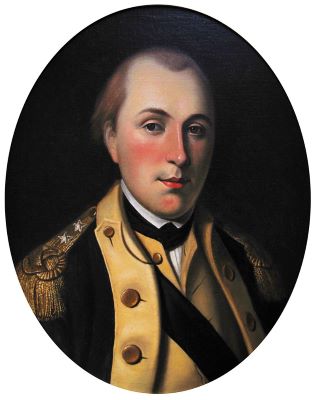
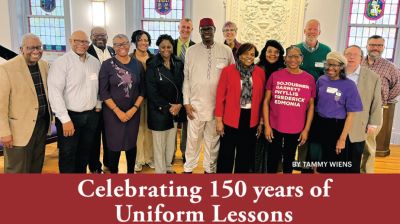

Regarding your email about Passport to History, the Wyoming County Historian has been running a program like this for the historical societies and museums in Wyoming County for the last 2 years and is doing so again this year. She gets NYS Decentralization grant funding to run the program. It has been very well received by the public, encouraging people to explore the museums and historical societies with a sort of “scavenger hunt” that runs from June through October, allowing people enough time to get to all the various societies and museums, since very few of them are open at the same time. Families do it together as an educational summer activity, grandparents bond with their grandkids – pointing out antiques in the museums that they remember from their childhood, and the societies and museums benefit by increased attendance.
You should check it out.
Cynthia Amrhein is the Wyoming County Historian, office in Warsaw, NY. (CAmrhein@wyomingco.net)
Sue Andrews
Operations Manager
office@arcadehistoricalsociety.org
Arcade Historical Society
331 West Main Street
P.O. Box 236
Arcade, New York 14009
http://www.arcadehistoricalsociety.org
Thanks for the information Sue. I checked the Wyoming County website but didn’t see anything like this. Perhaps you could contact Cynthia to provide more information about what seems like an excellent program.
Peter
Peter,
This was very interesting. I have sent it to the director of The Haddam Historical Society.
Stephanie
Thank you fellow President. Please be aware the these posts already are sent to director@haddamhistory.org.
Hello from Buffalo,
You mentioned local journals. With apologies if this is already familiar to you, but here in Buffalo, an independent 501(c)(3) publishes an illustrated quarterly, Western New York Heritage:
https://www.wnyheritage.org/
They recently celebrated their 20th anniversary. Geared for a popular audience, no peer review, no footnotes or bibliographies.
Warmest regards,
Cynthia
CYNTHIA VAN NESS, MLS
DIRECTOR OF LIBRARY & ARCHIVES
1 MUSEUM COURT • BUFFALO, NY USA 14216
Thanks Cynthia. It makes me wonder how many such publications there are in the state and if anyone has a list of all of them. Maybe there should be a session about them at one of the conferences.
Peter
Washington County Historical Society (based in Fort Edward, NY) puts out an annual journal (along with books on local history). http://www.wchs-ny.org/buy_journals.php
Congratulations. Do you notify New York History Blog when your journal is published? Have you presented about it at conferences such as APHNYS or MANY?
You seem to be ignoring social media platforms like Twitter, Facebook and Instagram. In Albany a group of local history bloggers created a FB page “Friends of Albany History”. https://www.facebook.com/FriendsofAlbanyHistory/
In addition to telling Albany stories, we use it as a central clearinghouse to post info about local history events from all sources. It is not unlike this blog in that way. We have over 6300 followers and the information is delivered to people through their FB feed.
True, I tend to ignore social media but I also was writing only about the ones I am familiar with that are sent to me or I saw an announcement for. You have an impressive achievement. Do you notify New York History Blog about your postings and events? Have you presented at the history conferences such as MANY either at the state level or a regional meet-up. Your Friends page seems like something other areas should do.
Peter
In relation to local suffrage & women’s history, I infuse the typical lecture with songs of the day & get people to sing along at the close of my program. I have also directed a suffrage play “The Revolt” at my library (newspaper accounts show that it was performed locally in 1916). The suffrage committee I co-founded in 2016 has created three well received programs using historic speeches. A Suffrage Rally in May 2017 followed the first wave of feminism & Suffrage from 1776 through the 1923 writing of the Equal Rights Amendment. In October 2017 our re-enactment of the 1900 NY State Suffrage Convention held in Glens Falls included historic speeches, a one-act play “A New Woman”, a vocal group singing suffrage songs, & food using recipes from The Suffrage Cookbook (1886 & 1915). in August 2018 we used speeches from the second wave of feminism to highlight the ERA & the 1977 National Women’s Conference. In all of these instances, we try to add local people’s voices by reading their speeches, letters to the editor, & more. We have a pageant (& more) planned for 2020.
We are a storytelling species and what better way to connect people to their past than through stories performed with and for people (and with food).
You should share your achievements with the history community.
Thanks for writing,
Peter